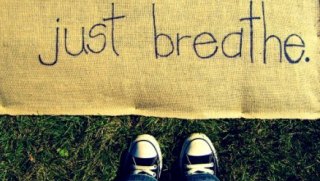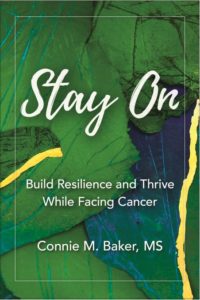You have received a new cancer diagnosis now what do you do? Hearing about this diagnosis can be devastating, even paralyzing. Read these helpful tips and make use of the sections that make the most sense to you. If you need further
When you hear you have cancer, many questions flood your mind. Is it life-threatening? Will I need surgery? Chemotherapy? Radiation? How will I be able to keep working? My family and community need me, how can I take care of them and find time to care for me? Will I have the emotional and physical support I will need? How do I tell my family? My friends? Who will help me?
The questions may go on and on in your mind, over and over. Be patient as the reality settles, treatment choices begin to unfold, and a plan develops. This may take some time.
The next steps are not always clear, but after years of working in healthcare, walking alongside people facing serious diagnoses, and being diagnosed with breast cancer in 2017, I have learned some things you may want to consider as you determine how to move forward. Unfortunately, we often wait until we are threatened with illness before we consider ways to support our bodies well. The following considerations could be integrated into all of our lives, promoting general health and perhaps prevent some of the illnesses we encounter.
Remember to breathe.
Take some gentle deep breaths, or try these other simple breathing techniques. Metaphorically, reach down, grab your ankles, and get your feet back under you. Give yourself the time you need, even though you may feel urgent pressure from the people and circumstances around you.
Most likely, whatever is going on in your body has been in process for a while, so this is a time to gather all the fragments of yourself that have been shattered by this blow and pull them back together. Your pieces may not fit together the same way they did before, which may be just fine. Allow time for the merging to take place while you consider what is right for you.
An important benefit of breathing and centering is that your heart and your brain can communicate in a way that optimally benefits your decision-making and performance. Tools such as prayer, HeartMath techniques, and guided imagery help you to self-regulate the response to stress and minimize any negative tapes playing in your head, which will enhance the healing process.
I get it. You may not feel like you have time to sit and breathe, pray, or listen to a recording. Please remember, this is your opportunity to get clear about what you need to help you heal. Your body is crying out for some changes to make it stronger and more resilient. Finding a place in your day for a mindfulness practice that works best for you may be the best gift you can give yourself.
When you take this time in meditation or prayer, you will emerge with clarity. It is possible that not everyone will support the decisions you make in your health journey, no matter what you choose. It is your life and your call. Kindly let any second-guessers know your decisions and invite their support. If you have spent time quietly bringing your heart, breath, and brain into sync, you will be able to communicate your needs.
Another parallel to going with the flow and surrender is acceptance. Acceptance of self, and acceptance of others. Along the path to acceptance is compassion. A friend of mine, Amy Pattee Colvin, wrote a book Cultivating Compassion: Simple Everyday Practices for Discovering Peace of Mind and Resilience filled with bite-sized inspiration and action items that can help you ease into the flow.
After a cancer diagnosis, tests continue for quite a while, which can be stressful. Learning how to deal with those periods of not-knowing and anticipation can minimize more damage to your body.
Imagine yourself in a river being gently guided downstream. There is nothing upstream that you need, so there is no need to struggle against the current.
I have a friend who is thriving after being diagnosed twice with Stage 4 cancer. He says he was Stage 8. He believes part of the reason for his success, along with a lot of prayers and great care, is just going with the flow.
My friend Glenda calls it Surrendering to the Line in the Sand. She feels her life, after being diagnosed with two primary cancers three weeks apart, is about surrender.
Surrendering to my body. Surrendering to my doctors. Surrendering to my life. Surrendering to my friends and family supporting me. Surrendering when I am tired and have to spend days in bed. Surrendering to Jesus.
~ Glenda ~
Read these posts to help you navigate your next steps:
Organize Information and Papers
Select Your Healing Dream Team
Atraumatic Care and Self-Care Plan
I’ve been in your shoes, and I’ll share with you what I’ve learned.
I blend compassion and humor into my mentoring sessions. I’ve found those are essential elements of every healing process.
I’m here to help you identify and manage the stress of your diagnosis and your overall life, and in the process to transform your life through increasing your sense of well-being, energy, and clarity.
Or you may reach me via my contact page.




